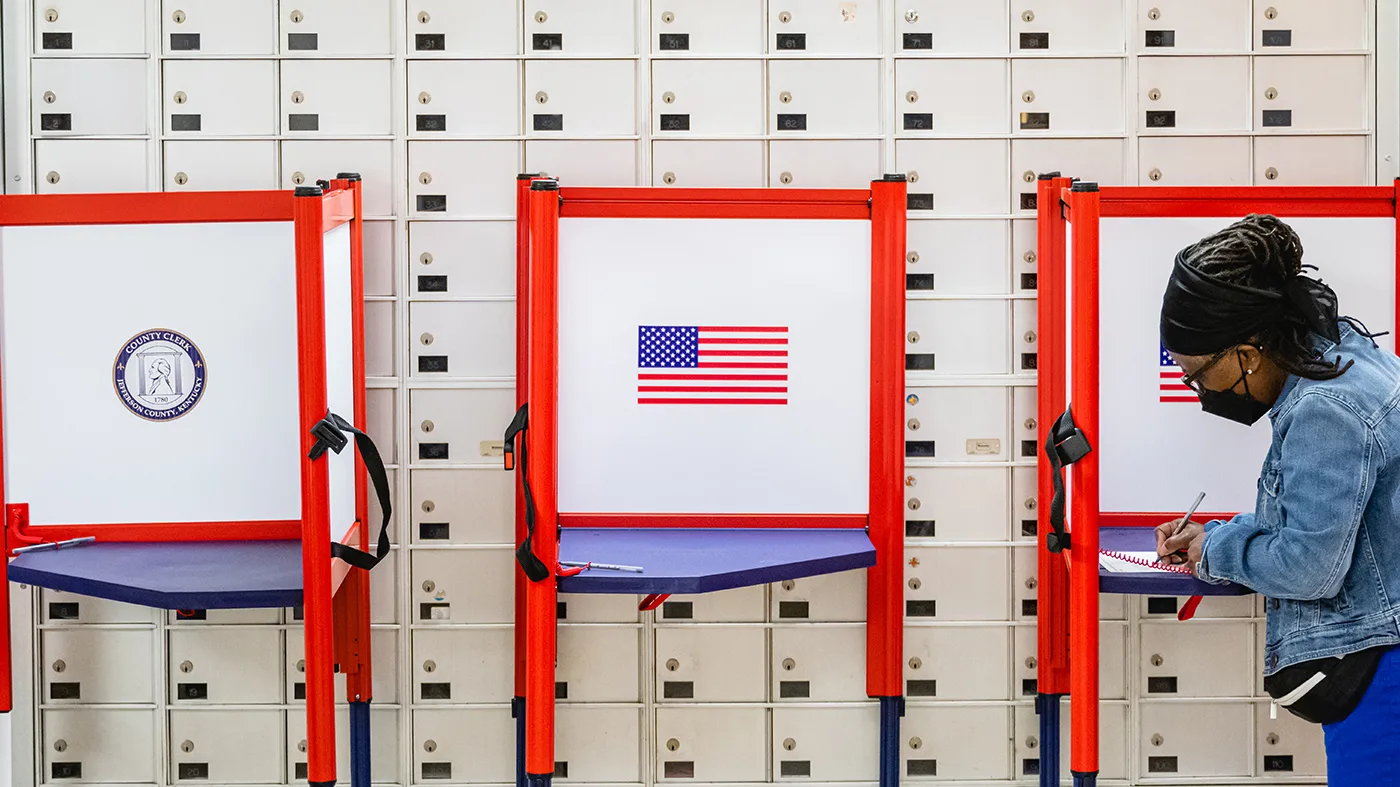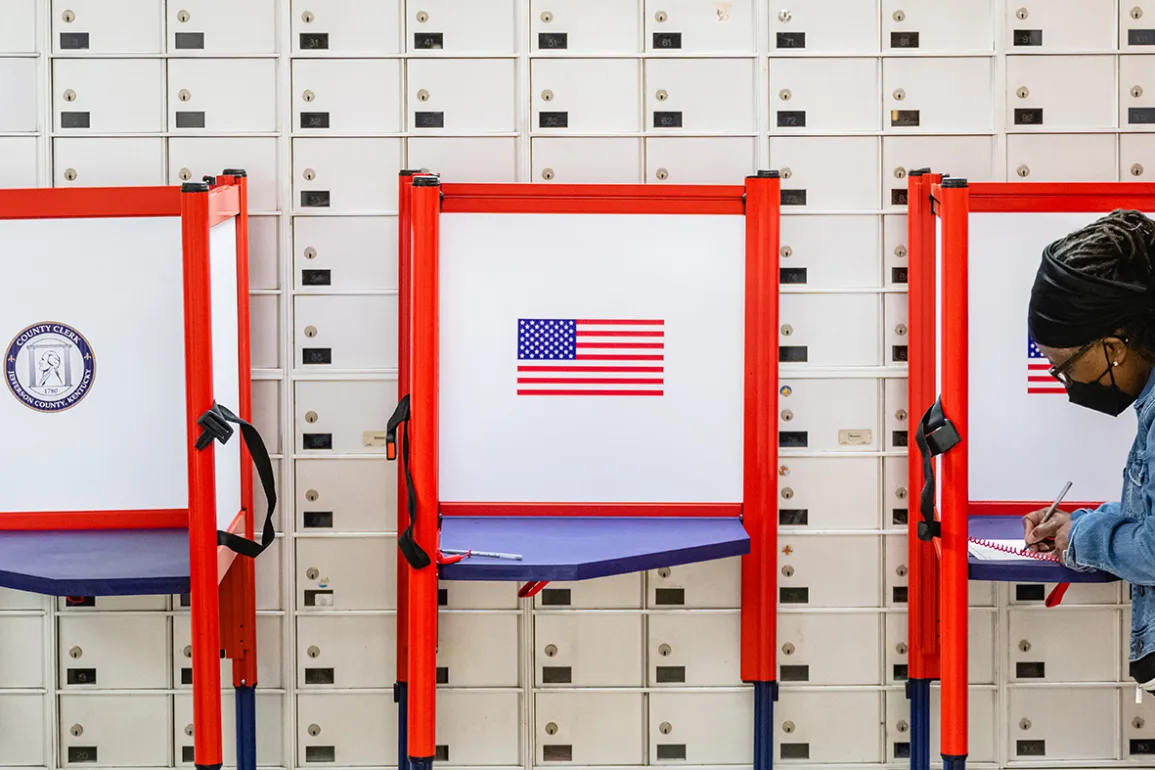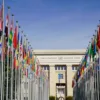The views expressed by contributors are their own and not the view of The Hill

A voter casts their ballot in the Kentucky Primary Elections at Central High School on May 16, 2023 in Louisville, Kentucky. Kentucky holds closed state primary elections with notable Republican candidates for Governor Daniel Cameron and Kelly Craft hope to face off against incumbent Democratic Governor Andy Beshear in the 2023 General Election. Getty Images
From book bans to restrictions on access to the ballot, recent attacks on Americans’ freedoms illuminate a refrain those on the front lines of the fight for democracy have always known to be true:
All politics is local.
As pundits set their gaze on 2024, the future of America is at stake in state and local elections underway right now. In Kentucky, Louisiana, and Mississippi, up for grabs are the roles of governor, attorney general, and secretary of state. These roles control administrative priorities, set the budget, represent the states in legal matters and set policies for engaging in elections. Public policies definitely hit home. State and local elections have a direct, consequential impact on the quality of life for residents and members of the community. For example, mayors and city councils have oversight over policing and public safety, affordable housing, potholes and infrastructure issues. Despite the chatter about next year’s race for the White House, the reality is that state and local elections will have more of an impact on voters’ lives than what’s happening in Washington.
To prove this, think of what we’ve witnessed in the last year alone. Before the Supreme Court’s Dobbs v. Jackson Women’s Health Organizationdecision, state legislators in Austin made performing an abortion in Texas a felony punishable by up to life in prison. In Florida, because of HB1557—a bill lawmakers in Tallahassee approved—a teacher who creates a safe, inclusive classroom environment for LGBTQ students puts their job in jeopardy. Without a shred of evidence that the state has an issue with integrity at the polls, Virginia’s attorney general established a so-called Election Integrity Unit in September, one of the latest in a long line of post-2020 voter suppression efforts. On the local level, school boards, judges, prosecutors, and thousands of other elected officials have been making decisions that affect all of our lives. When we consider the proliferation of white supremacy, misogyny, homophobia and transphobia in American culture, our country would be remiss to ignore just how much power each of these offices holds and the harm caused to Black, brown and other historically-marginalized communities.
But in the midst of these threats to our civil rights and liberties, there also are powerful examples of Americans at the state and local level challenging the status quo head-on. After the Supreme Court reversed Roe v. Wadelast year, governors and mayors who are committed to safeguarding access to reproductive health care signed legislation to uphold that right. Leaders who recognize the destructive impact America’s criminal legal system has had on Black and brown people are taking steps to change it via reforms to drug laws, bail, and probation and parole. And as gun violence continues to devastate communities across the country, lawmakers in statehouses and city halls are taking action where their federal counterparts fail.
Creating an America that centers justice and equity for all is not the task of legislators alone, however. As president of Demos, I am endlessly inspired by local grassroots organizers building the infrastructure that facilitates change. When the local or federal government fails to respond equitably or adequately, local advocates work to change their own conditions. For example, through a focus on co-governance, our partners at the Texas Organizing Project (TOP) are working to build civic power from the ground up. After Texas leaders’ dismal response to Hurricane Harvey in 2017, TOP laid the foundation for its Boards and Commissions Leadership Institute (BCLI), a program that trains women of color to run for—and win—local office.
Another Demos partner, Pittsburgh United, successfully won back public control of Pittsburgh’s water system while working collaboratively with the Pittsburgh Water and Sewer Authority to make decisions about drinking water in the city. In New York, the Public Bank NYC (PBNYC) coalition is working to invest all of the city’s municipal funds in local community needs, including permanently affordable housing, community-controlled financial institutions, small and worker-owned businesses, and community solar and other measures to address the climate crisis. In Virginia, the For Us, Not Amazon coalition has taken a stand against an Amazon takeover of Arlington. Take Action Minnesota and Organizers in the Land of Enchantment in New Mexico have done work that makes it easier for thousands of Americans to vote.
This work that changes lives in monumental ways is at the core of Demos’ Inclusive Democracy Project. This cohort of state and local leaders—the majority people of color—organizes working-class communities and communities of color to advance bold democracy policies across the U.S. Every organizer within this cohort is living proof that creating change isn’t just about winning elections and enacting legislation. Fundamentally, it’s about leading from a place of love for your community.
In recent years, while some have taken action to hold us back, there are also many Americans who have asked how we can move toward a just, inclusive multiracial democracy in this country. To those sincere about building power on behalf of Black and brown communities, I have two words: start small. More often than not, the change you wish to see in the world begins in your own backyard.
Taifa Smith Bulter is president of Dēmos, a racial justice movement-connected think tank that advances a comprehensive agenda to build community power.
Copyright 2023 Nexstar Media Inc. All rights reserved. This material may not be published, broadcast, rewritten, or redistributed.



